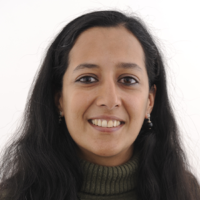Earlier this week, Kenneth Arrow, a Nobel prize-winning economist passed away at the age of 95. Dr. Arrow was a prolific thinker, truly a giant among economists. His research spanned areas as diverse as welfare theory, innovation, labor market networks, public health, and risk. Many extensive obituaries to Dr. Arrow have been written in major newspapers. He was also a great champion of ideas and values we hold dear at the Union of Concerned Scientists.
The incredible breadth of Ken Arrow’s work
As students of economics will attest, it is difficult to find a field of economics that hasn’t been influenced in some way by Dr. Arrow’s thinking. As a graduate student, I recall being introduced to ‘Arrow’s Impossibility Theorem’ and discussing its real-world implications for voting and social choice. That’s also when I first read about his work on learning curves and its bearing on technological progress. In a seminal paper, titled The Economic Implications of Learning by Doing, he wrote that:
“Learning is the product of experience.” And “The role of experience in increasing productivity has not gone unobserved, though the relation has yet to be absorbed into the main corpus of economic theory.”
Today these insights can help explain some of the extraordinary decline we’ve seen in the costs of renewable energy.
Right until the end, he was engaged in cutting-edge work, including coauthored research on the risks of climate change, the social cost of carbon, appropriate discount rates for decisions with long time horizons, and public health.
In a recent paper on the social cost of carbon, he and his coauthors argued that, “Costs of carbon emissions are being underestimated, but current estimates are still valuable for setting mitigation policy.” (An insight which is highly relevant for an upcoming hearing on the social cost of carbon in the House Committee on Science, Space and Technology!)
To get a fuller sense of the amazing breadth of Ken Arrow’s work, take a look at these resources:
Engagement with the Union of Concerned Scientists
Dr. Arrow shared common interests with UCS, especially in recognizing the threat of climate change and the need for swift, cost-effective solutions. He also had a lifelong commitment to issues related to peace and security.
As far back as 1997, he was a signatory to the World Scientists’ Call for Action at the Kyoto Climate Summit, a statement initiated by UCS. The statement included this exhortation to world leaders, one that resonates poignantly even today:
We, the signers of this declaration, urge all government leaders to demonstrate a new commitment to protecting the global environment for future generations. The important first step is to join in completing a strong and meaningful Climate Treaty at Kyoto. We encourage scientists and citizens around the world to hold their leaders accountable for addressing the global warming threat. Leaders must take this first step to protect future generations from dire prospects that would result from failure to meet our responsibilities toward them.
Closer to home, he signed on to a 2015 UCS-sponsored letter to California legislators urging the adoption of strong climate and clean energy policies to help ensure a reduction in the state’s global warming emissions of 80 percent below 1990 levels.
In December 2016, Dr. Arrow was one of over 5,500 scientists who signed An Open Letter to President-Elect Trump and the 115th Congress, calling on them to ensure that science continues to play a strong role in protecting public health and well-being.
I had the honor of meeting him briefly when he attended a UCS reception at the American Economic Association meetings in January 2009. He was gracious and encouraging of our work to engage more economists in designing and advocating for solutions to climate change.
A social scientist of the highest order
Dr. Arrow took the charge of a social scientist with great seriousness. He received the highest honors in the economics profession, including the Nobel Prize and the National Medal of Science, and was a widely published academic researcher. But he was no ivory tower academic.
Ken Arrow engaged widely and deeply with the real and urgent problems of the day. What’s also striking is the strong global perspective he brought to his work. He was a lead author for the Intergovernmental Panel on Climate Change (IPCC) Second Assessment Report in 1995. He was also a founding trustee of Economists for Peace and Security, an organization of economists, other social scientists, and citizens concerned about issues of peace, conflict, war, and the world economy.
In an email tribute, Geoffrey Heal, UCS Board member and the Donald C. Waite Professor of Social Enterprise at Columbia Business School wrote this:
Ken Arrow dominated the social sciences for half a century, just as in their eras Newton and Einstein dominated the physical sciences. In addition to being the giant on whose shoulders we all stand, Ken was a charming, modest, friendly and unassuming person. I knew him for over half a century, and will miss his friendship, his encouragement to think differently and his unparalleled intellectual insights.

